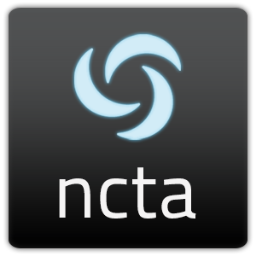NCTA: FCC Needs To Look Inward For Deployment Problems

The National Cable & Telecommunications Association has told the FCC that if it wants to promote advanced telecommunications, arbitrarily raising the speed definition and imposing Title II regs aren't going to help.
The cable trade group also called for a third-party examination of what the government has gotten for the $28 billion in federal spending on extending broadband to unserved areas that has been spent since the commission first concluded in 2010 that deployment was wanting.
While the FCC has found in the last four Sec. 706 reports on advanced deployment that high speed broadband is not being made available to all in a reasonable and timely fashion, it has failed to point any fingers at itself, said NCTA.
In comments sought by the FCC on how it could better ensure such timely deployment, the cable trade association said that, "amazingly," nowhere in the latest 706 report "does the Commission acknowledge its own role in failing to rectify the alleged problem."
A clearly ticked-off NCTA ticked off a litany of FCC failures. Among those, according to the group, was that the FCC rather than promoting build-outs where there wasn't any service, the commission was spending billions to upgrade phone companies' existing DSL service.
But beyond not helping to resolve problems, the FCC is now going to make them worse, NCTA said, by "arbitrarily raising the speeds for services it will define as 'broadband' and by imposing Title II regulation on previously unregulated broadband services." NCTA says that neither of those "will do anything to bring faster, cheaper, or more robust broadband services to a single American."
Along with the Sec. 706 report, the FCC issued the request for comment on how it should proceed given the congressional directive that if advanced telecom is not being timely deployed, the agency "“shall take immediate action to accelerate deployment of such capability by removing barriers to infrastructure investment and by promoting competition in the telecommunications market.”
Multichannel Newsletter
The smarter way to stay on top of the multichannel video marketplace. Sign up below.
NCTA had four main suggestions about how it thought the FCC could get back on the right track. NCTA called for the immediate adoption of the following, which it said would actually bring broadband to those who most need it:
"(1) The Commission immediately should revoke its offer to incumbent local exchange carriers (LECs) of exclusive access to over $10 billion in high-cost universal service support for services that fail to meet the Commission’s current definition of broadband. Instead, funding should be offered on a competitively neutral basis to any qualified broadband provider willing to provide service of the speed and quality defined by the Commission;
"(2) The Commission immediately should take steps to implement the Remote Areas Fund that it adopted in the 2011 [Connect America Fund] Order but never implemented;
"(3) The Commission immediately should issue a Notice of Proposed Rulemaking to create a broadband Lifeline program, which was first identified as a priority in the 2010 National Broadband Plan." Currently, lifeline support is targeted to traditional phone service, though the FCC is trying to change that; and
"(4) An independent third party should examine why progress extending broadband deployment to unserved areas has been so slow given that more than $28 billion in federal funding has been spent on this goal since the Commission first found that deployment was not reasonable and timely back in 2010."
Contributing editor John Eggerton has been an editor and/or writer on media regulation, legislation and policy for over four decades, including covering the FCC, FTC, Congress, the major media trade associations, and the federal courts. In addition to Multichannel News and Broadcasting + Cable, his work has appeared in Radio World, TV Technology, TV Fax, This Week in Consumer Electronics, Variety and the Encyclopedia Britannica.

